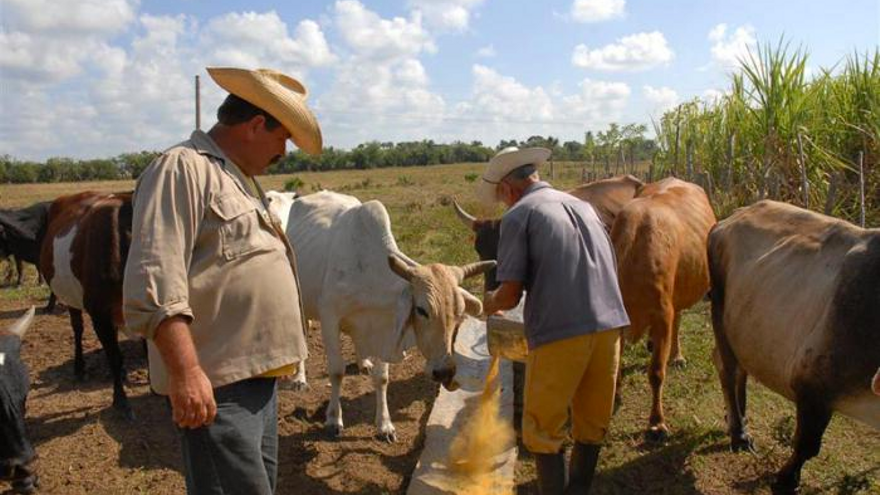
![]() 14ymedio, Havana, 30 August 2022 — Farmers who don’t declare their large livestock face much higher fines than the current ones, since the sanctions rise sharply, increasing from a 50 peso fine for not declaring an animal, to 20,000 pesos. The amount had been stagnant since the approval of the 1997 decree that regulated the control and registration of cattle and horses. The authorities said that the fines currently were too low and “didn’t fulfill the purposes for which they were planned.”
14ymedio, Havana, 30 August 2022 — Farmers who don’t declare their large livestock face much higher fines than the current ones, since the sanctions rise sharply, increasing from a 50 peso fine for not declaring an animal, to 20,000 pesos. The amount had been stagnant since the approval of the 1997 decree that regulated the control and registration of cattle and horses. The authorities said that the fines currently were too low and “didn’t fulfill the purposes for which they were planned.”
The new decree, which updates the previous one, includes up to 15 types of violations that must be punished. Among them, the 10,000 pesos fine stands out, compared to the current 20, in case of not identifying an animal and its confiscation, if it’s demonstrated that the information has been doctored. For years, many Cuban ranchers have declared males and not females to avoid recording milk production and births.
Failure to update deaths, births or shortages of livestock is also penalized with 10,000 pesos, while sales, transfers and other unrecorded operations that involve a change of ownership involve a fine of 5,000 pesos per animal.
The highest penalties, of 20,000 pesos, are intended for those who allow the presence of livestock of any kind on the roads. In this case, the confiscation of the animal is included, another sanction intended for the cases of owners who drive their cattle onto roads or railways so that they are killed, apparently accidentally. This allows them to eat the meat, without having to give explanations to the State.
Giving false information and hiding it, or not counting their animals also carries a 20,000-peso fine.
Fines of 10,000 pesos will be applied to those who buy or receive large livestock without State authorization, as well as to those who sell or transfer it. The same applies to those who, having authorization to slaughter the cattle, don’t do so in accordance with the rules of execution and the destination of the meat. Allowing grazing on other people’s land is also fined with this amount plus the confiscation of the animal in the case of recidivism.
In addition, there will be fines of 5,000 pesos for those who move livestock from one farm to another if they belong to different livestock registers and don’t have permission to do so. Also for those who have more livestock than what is authorized and those who “are forced to buy animals in excess from landless livestock holders, not to do so.”
The decree was published on August 24 and released by the official press on Monday. Although, according to the authorities, the purpose is to promote agricultural production, it’s still a mere increase in the sanctions that already exist and have been flouted with a subterfuge on the Island for decades.
The obligation to declare cattle was established in Cuba in 1964, and the results have not been exactly successful. Beginning in 1967, a drop in beef production began that has been unstoppable. That year there was 7.1 million head of cattle and since then the fall has been sustained. Since 1986, it hasn’t reached 5 million, and in 2021 only 3.7 million were declared.
The 63 measures launched in April of that year to stimulate food production included the liberalization of the slaughter, consumption and sale of beef, in addition to milk, but few have obtained the required permit, and most prefer to continue selling on the black market, since the dividends are higher.
The authorities also announced the payment in foreign currency for those who exceeded the deliveries over the contracted amount, but the banking problems and the lack of foreign currency, which producers need to buy supplies, have made it practically impossible for them to collect what was promised.
Translated by Regina Anavy
____________
COLLABORATE WITH OUR WORK: The 14ymedio team is committed to practicing serious journalism that reflects Cuba’s reality in all its depth. Thank you for joining us on this long journey. We invite you to continue supporting us by becoming a member of 14ymedio now. Together we can continue transforming journalism in Cuba.
